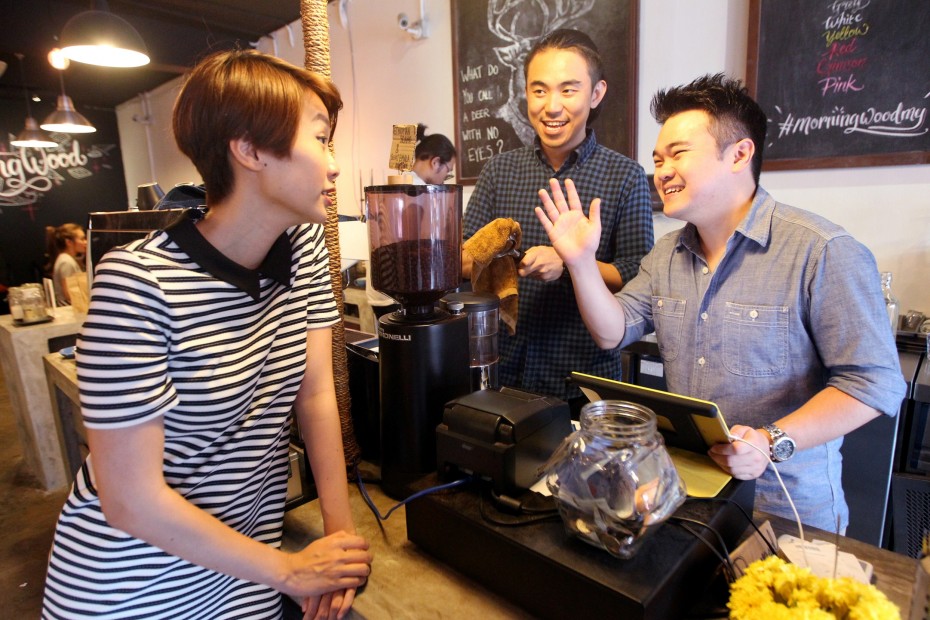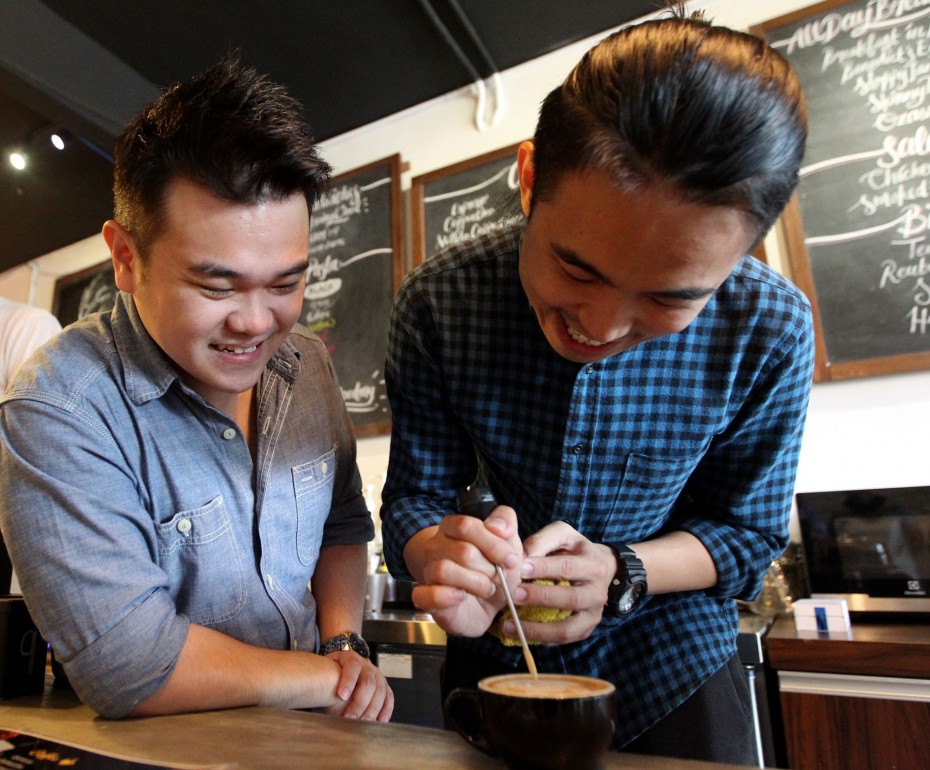By GINGER ANG and IAN YEE
alltherage@thestar.com.my
IN the alternate universe that is YouTube, Reuben Kang, Jared Lee and Marianne Tan can do no wrong.
Their rise to YouTube celebrity status has been quite remarkable – Kang is one half of the popular JinnyboyTV duo (he calls himself the shorter half), Lee’s the creative whiz behind production company GRIM FILM, and Tan the girl-next-door-turned-YouTube actress-turned-mainstream-movie star.
It’s a charmed existence they’ve lived since the YouTube scene in Malaysia burst to life. Their videos have been viewed over 70 million times on YouTube, their individual careers are on the up, their fans adore them, and they look disgustingly happy together as long-time friends. In fact, Lee whipped up quite the Internet storm when he proposed to Tan recently (on a sunset-lit beach, no less), breaking hearts all over social media.
But now, they’ve taken on a new challenge more daunting than anything they’ve done in their creative careers – running a café.
The curiously named Morningwood café in Subang Jaya, Selangor, was founded by the trio and two other partners, Keng Lee Sim and Majorie Chew.
While Keng and Chew are the business brains, thanks to their banking background, their famous friends have come to be seen as the faces of the café.
“There’s a tuition centre in the same building, and some of the students drop by to take pictures with us, even though at their age they can’t always afford to buy the coffee here,” said Kang.
Related story: When the beans fall – why cafés shut down
But despite their fame and no shortage of social clout, they are keen to embark on this adventure the good old-fashioned way – with grit and hard work.
“The one thing we all agreed on when we started this was that this isn’t just for us to syok sendiri,” said Lee.
“We’re here all the time!” said Kang, adding that they have been involved in all the “dirty work” – painting the walls, doing the dishes, arranging chairs and so on. “Having some people recognise us was a slight advantage, but at the end of the day, if the environment here is horrible or your coffee isn’t good, people won’t come back.”
Tan added: “The toughest part has been the nitty-gritty things people never hear about – managing the kitchen, purchasing stock, getting permits and things like that.”

Despite being busy with their full-time careers, Tan, Lee and Kang don’t want to be known as just the faces of the cafe. “We wanted to make sure that people realise that we actually run the place as well. We’re here all the time,” says Reuben.
While the notion of starting your own café or restaurant can be very romantic, the guys are doing their best to keep their feet on the ground.
“A lot of people have come up to us and said, ‘you’re all just jumping on the cafe trend, you must think it’s very easy’. But that wasn’t it at all. It was a proper long-term business plan for us,” said Kang.
“You can’t do YouTube forever,” continued Tan. “You can’t be shooting videos forever (Reuben interjects: ‘Yes you can!’). But at least there’s something extra as well, to help financially.”
The guys got a huge headstart as they took over a space occupied by another café, Flat White.
Clearly, there was still a lot of work to do. Kang and Tan had worked part-time at cafés in the past, but that was pretty much all the experience they had in the business.
But having inherited Flat White’s staff, they were able to start learning from their baristas. In typical YouTuber fashion, Lee has been charting his coffee-making progress on his Instagram account.
Lee and Tan have also spent the past year trying out as many cafés as they could during trips to Melbourne and Tokyo. “We wanted to expose ourselves to different coffee cultures, because I think right now the coffee industry is very skewed towards Australian café culture.
“In Tokyo, their cafés are extremely quiet. There isn’t a sound in the place, so you’ll actually remember the taste of the cup because you kind of have time to yourself. In Malaysia, cafés are like the noisiest places!” said Tan.
“It’s a hangout place, a place to talk, kind of like in Australia,” added Kang.
At the moment, Tan is the only one who isn’t at the café every day, but that’s only because she won a part in a movie which is currently in production. She couldn’t give away too much, but told us it’s the reason why she had her long locks chopped off.
Since Kang and Lee are mainly involved in production, they have a bit more flexibility to spend time at the café. “Most of the time, we bring our clients here,” said Lee.

Lee’s been experimenting with drinks since being shown the ropes by their current barista. This resulted in a number of creations, including the heavenly-sounding Nutella hot-chocolate.
We had to address the big elephant in the room (no pun intended), though – why “Morningwood”?
“Someone suggested the word ‘morning’,” said Tan. “And then somebody went, ‘oh yeah, what about something to do with wood?’
“Somewhere along the way, Jared just went: ‘Hey guys, it’d be really funny to call it Morningwood!’”
The menu isn’t any less cheeky. Standouts include the ‘Ham Sap’ (‘cos there’s ham in it), ‘Hot Chicks’ and Marianne’s invention, the ‘Orgasm’. There’s suggestive innuendo all over the café, even in the tip jar.
As for the coffee, it’s a customised blend made by a Klang-based coffee roasting couple. “They’ll come from time to time without warning and just be like, ‘make me a cup!’, just to make sure we’re doing their beans justice,” said Lee.
Ultimately, the trio’s goal is to expand their love for the cafe business. In fact, a second outlet’s already in the works. “We’re not going to stop at one,” said Kang. “It’s a passion we’re going to keep pursuing.”
* The original version of this story stated that Flat White had gone out of business as the partners behind the business had a falling out. This was an error on our part as the information was not true, and for this, we apologise.






